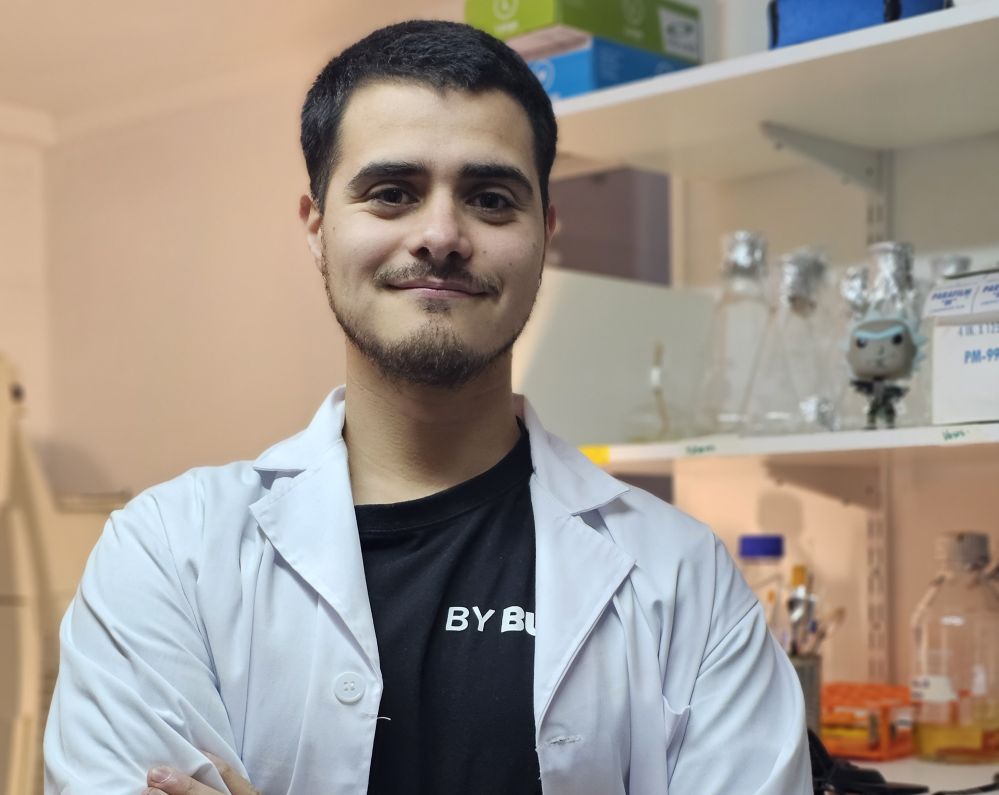Fitness
ByBug: Black soldier flies can deliver cheaper, more scalable recombinant protein production

Chilean startup ByBug has raised a $1.4 million seed round as it builds a platform to produce recombinant proteins from genetically engineered black soldier flies, an approach it claims is cheaper and more scalable than using engineered microbes via precision fermentation.
The round, backed by Südlich Capital, Arpegio VC, GRIDX, Halcyon Venture Partners, and Atento Capital, will help the startup expand R&D efforts and prepare for commercial operations in Tulsa, Oklahoma, cofounder José del Solar told AgFunderNews.
“Currently, we have an R&D center in Chile, which includes a semi-industrial BSF [black soldier fly] rearing plant and a molecular biology laboratory where we test the downstream process at a laboratory scale. In Tulsa, we have established a commercial office, and in the next funding round, we will implement an industrial pilot with a BSF plant and recombinant protein purification facility.”
The economics of recombinant protein production
As for the unit economics of recombinant protein production using black soldier flies vs precision fermentation, he claimed, “The upstream cost of the BSF is 10 to 20 times cheaper,” thanks to lower feedstock costs (BSF larvae feed on ag byproducts vs purified sugars), lower capex costs, and lower labor costs.
“The maintenance cost of BSF is lower than that of microbes. Additionally, it is easier to scale up BSF biomass as they are reared in trays, with laboratory batches similar to industrial production. In contrast, microbes need to be scaled and standardized at each phase of the bioreactors.
“The global production capacity of BSF is at least 100 times greater than the current capacity of precision fermenters, demonstrating the high scalability of this technology.”
Aside from lower capex and opex costs, insects are also better equipped to make certain high-value proteins than microbes, he claimed. “Insects, being animals and more evolutionarily similar to mammals, have the capacity to perform post-translational modifications that microbes cannot, allowing for a wider range of potential proteins. This is crucial in sectors such as human and animal pharmaceuticals.”
Black soldier flies vs fruit flies
While several insects could express recombinant proteins, he noted that black soldier flies “do not carry diseases or act as agricultural or human pathogens,” produce more protein per gram of biomass than fruit flies [deployed by AgFunder portfolio co Future Fields to make growth factors and bipharmaceuticals ] and have “greater tolerance and resistance to biotic and abiotic factors.”
On a more practical level, he said, “The infrastructure for intensive and automated rearing of BSF already exists, demonstrating that large-scale production is feasible.”
While BugEra and FreezeM focus on “enhancing the natural characteristics of BSF” through genetic engineering, companies such as Flybast and Entozyme use BSF to produce growth factors and enzymes, respectively, he noted. “What differentiates us from these companies is our genetic editing platform, which allows us to obtain strains in half the time of the current standard. We have two patent applications: one for our BSF strain transportation system and another for our genetic editing methodology for insects.”
The product pipeline
Currently, the plan is to make two types of products, he said: high-protein insect flour that contains the recombinant proteins, “eliminating the need for purification and significantly reducing production costs,” and purified products.
For the purified recombinant proteins, he said, a scalable downstream processing and purification process is still being developed: “This is one of the goals of our seed round.”
Byproducts that could be monetized from this process include high-protein biomass (for animal feed), insect frass (as fertilizer), and fatty acids (for cosmetics).
“In the segment of unpurified proteins,” said del Solar, “we are working on an immunostimulant for fish developed by the company Aquit, which reduces antibiotic use in aquaculture.
“In the segment of purified proteins, we are developing a platform for the production of therapeutic monoclonal antibodies for animals. Additionally, we offer a recombinant protein production service for various clients worldwide, the details of which we cannot disclose due to confidentiality agreements.”
Further reading:










